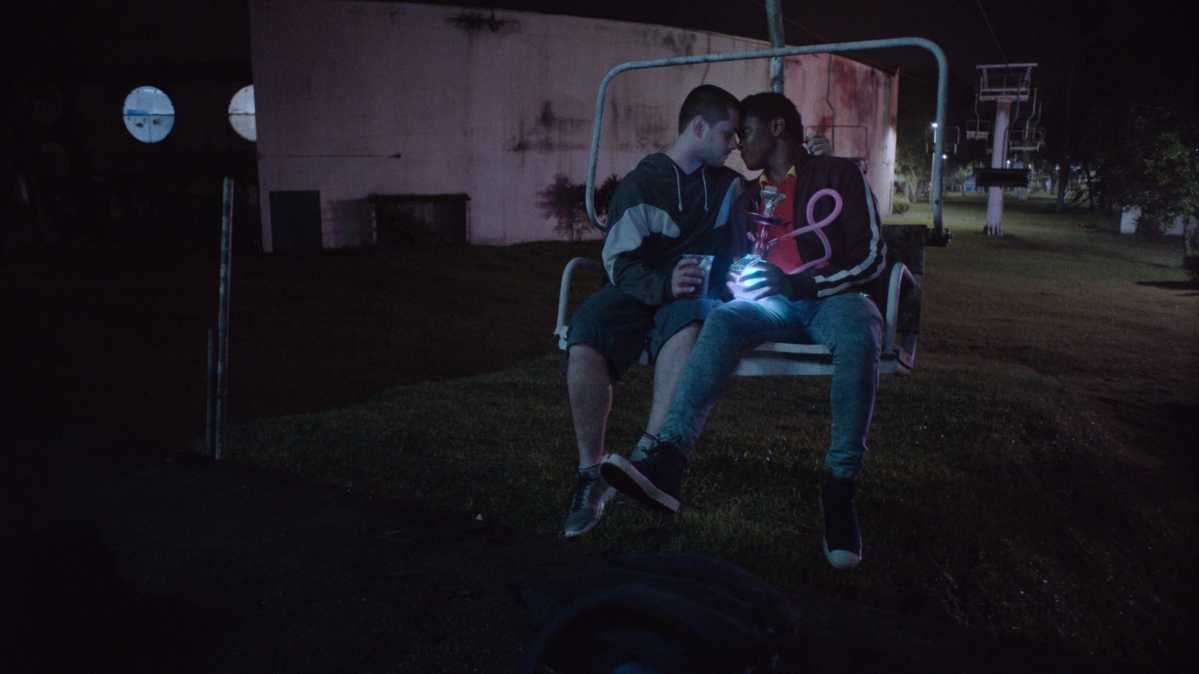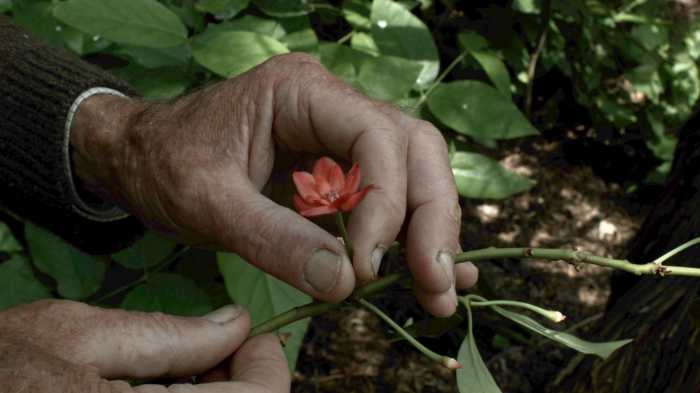There were dozens of LGBTQ films screening at the Toronto International Film Festival this year, with many of them expected to play at upcoming film festivals and on theatrical release in the coming months. Here is a rundown of a handful films to keep an eye out for.
“Strange Way of Life”
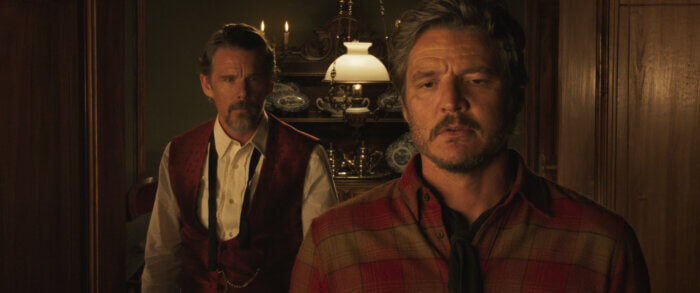
Pedro Almodóvar’s short film, “Strange Way of Life” has Silva (Pedro Pascal) riding into Bitter Creek to see Jake (Ethan Hawke), the town sheriff — perhaps to rekindle their past romance, but also to protect his son, Joe (George Steane), who is wanted for murder. Jake has plans to bring Joe to justice and avenge his sister-in-law’s death. Almodóvar builds the sexual tension by panning down Silva’s back to show Jake’s lust to a kiss on the back of the neck, but the more erotic moments, seen in a flashback, feature young Silva (José Condessa) and young Jake (Jason Fernández) kissing passionately. Almodóvar’s trademark reds are on display in curtains, a bedspread, a scarf, and of course in the bloodshed (it is a western after all). As the dramatic tension builds to a three-way draw, there is eventually talk of destiny. Beautifully shot and nicely acted by both Hawke and Pascal, “Strange Way of Life” is a satisfying short.
“Frybread Face and Me”
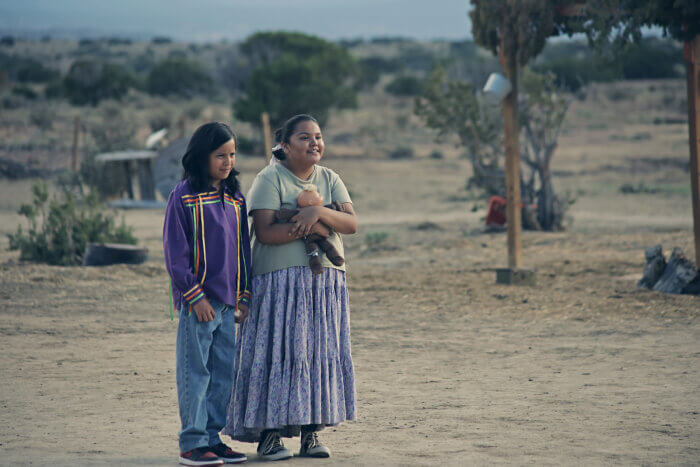
“Frybread Face and Me” is a slight but involving drama, by out gay writer/director Billy Luther. Benny (Keir Tallman, charming), an 11-year-old who “sticks out” in San Diego in 1990. (He listens to Fleetwood Mac and reenacts soap operas with his action figures.) When his parents send him to Arizona to go live with his maternal grandmother (Sarah H. Natani) on the Rez, Benny feels they are ruining his life. Once there, however, he meets his aunt Lucy (Karhara Hodges) who may be a lesbian; his uncle Marvin (Martin Sensmeier), a rodeo rider; and his cousin, Fry (Charley Hogan), who becomes his best friend. Fry teaches Benny to find strength in his culture, as well as how to drive. He also gains wisdom from his grandmother, who does not speak English. A gentle, poignantly narrated queer coming-of-age drama, “Frybread Face and Me” provides nice insights by creating meaning with symbols, such as a Navajo rug, that express life’s possibilities.
“Unicorns”
“Unicorns” is yet another tale of a straight man who becomes romantically interested in a trans performer. (See “Joyland,” “Haymaker,” and others.) But this engaging drama, directed by Sally El Hosaini and James Krishna Floyd — he also penned the screenplay — is elevated by strong performances. Luke (Ben Hardy) unexpectedly attends Aysha’s (Jason Patel) drag show in an underground club. He is enchanted by her, but after a kiss, he notices her Adam’s apple, and recoils. When Aysha offers Luke a job driving her, he agrees because he wants money to take his son to Disneyland. As they spend time together, the unlikely pair slowly act on their desires which culminates in a passionate sex scene that is both tough and tender; it shows how the couple navigates their budding relationship. But then they are separated by an accident that forces Aysha to go back to her family and back in the closet just as Luke may be coming out. “Unicorns” generates real emotions as Luke and Aysha determine if they will have a future together and it is hard not to root for them both.
“Solo”
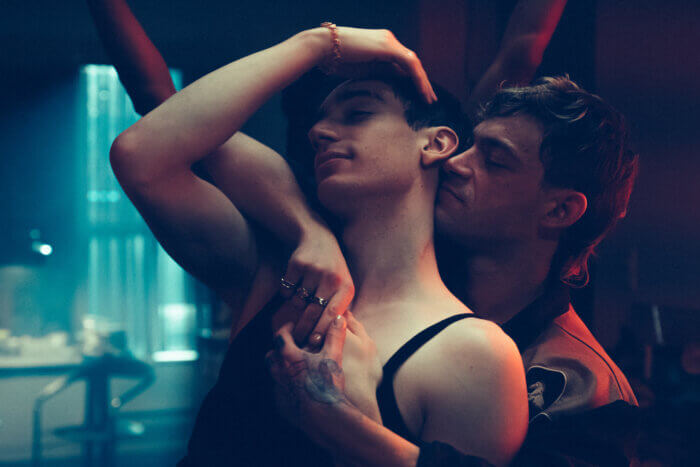
“Solo” is set largely in a drag bar where Simon (Théodore Pellerin) performs. When Olivier (Félix Maritaud) starts to perform in the club, he and Simon spark an attraction, and quickly couple up. They even start a dual act. But their relationship hits a snag as Olivier becomes more controlling, keeping Simon from his family. Moreover, when Simon’s estranged, successful mother Claire (Anne-Marie Cadieux) returns after a long absence, Simon craves her elusive affection. Pellerin gives a superb performance as a young man who absorbs Olivier’s constant criticism and Claire’s passive-aggressive behavior, until he reaches a breaking point. He generates empathy even when he is weakest. Marituad is also fantastic in his club scenes and when Olivier is being toxic. “Solo” is a bit thin on plot, but the performances on stage and off are showstopping.
“Backspot”
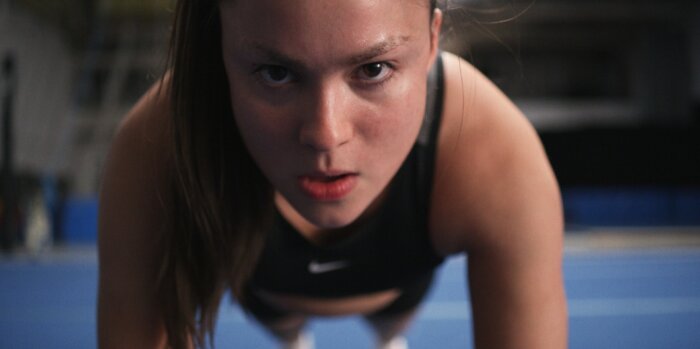
“Backspot” is a formulaic sports film about Riley (Devery Jacobs), a queer cheerleader who gets a chance to compete for a championship with her girlfriend, Amanda (Kudakwashe Rutendo). Their lesbian coach, Eileen (Evan Rachel Wood), is as intense as the pressure they face. Riley pulls out her eyebrows to deal with stress, and the demands of the team take a toll on the girls’ relationship. Director D.W. Waterson films much of “Backspot” with a handheld camera that immerses viewers in the action, and they employs closeups when Riley gets a bloody nose or has a panic attack. While Eileen comes across as no-nonsense, Riley does get some encouragement from Eileen’s assistant, Devon (Thomas Antony Olajide), and their tender scenes together — especially when Riley sneaks into a gay bar where Devon works as a dancer—are a highlight. The cheerleading routines and practices are also enjoyable to watch. “Backspot” is more a character study than a competition film, which may be why it sticks the landing.
“Days of Happiness”
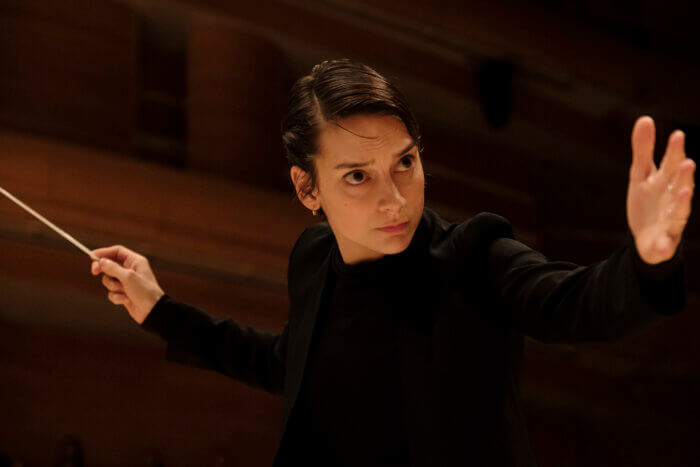
“Days of Happiness” is a solemn Canadian drama by writer/director Chloé Robichaud about Emma (Sophia Desmarais), a lesbian conductor who is finishing her residency with the Montreal Orchestra. (Yannick Nézet-Séguin, musical director of the Metropolitan Opera of New York is the film’s musical consultant.) Her father, Patrick (Sylvain Marcel), acts as her manager and they hope Emma can prove herself so she can continue working with the Orchestra. In addition, Emma is romantically involved with Naëlle (Nour Belkhiria), a cellist and single mother who is closeted. Emma’s efforts to balance her personal and professional relationships form the crux of the film, and there are some interesting episodes as she makes a risky choice to conduct Schoenberg and considers leaving her father for representation elsewhere. Although “Days of Happiness” is often slow going and repetitive, with Emma engaging in selfish behavior and fighting with the people who love her, Desmarais gives an earnest performance. The music, which includes Mozart and Mahler, is quite nice and gives viewers a breather from all the drama.
“Toll”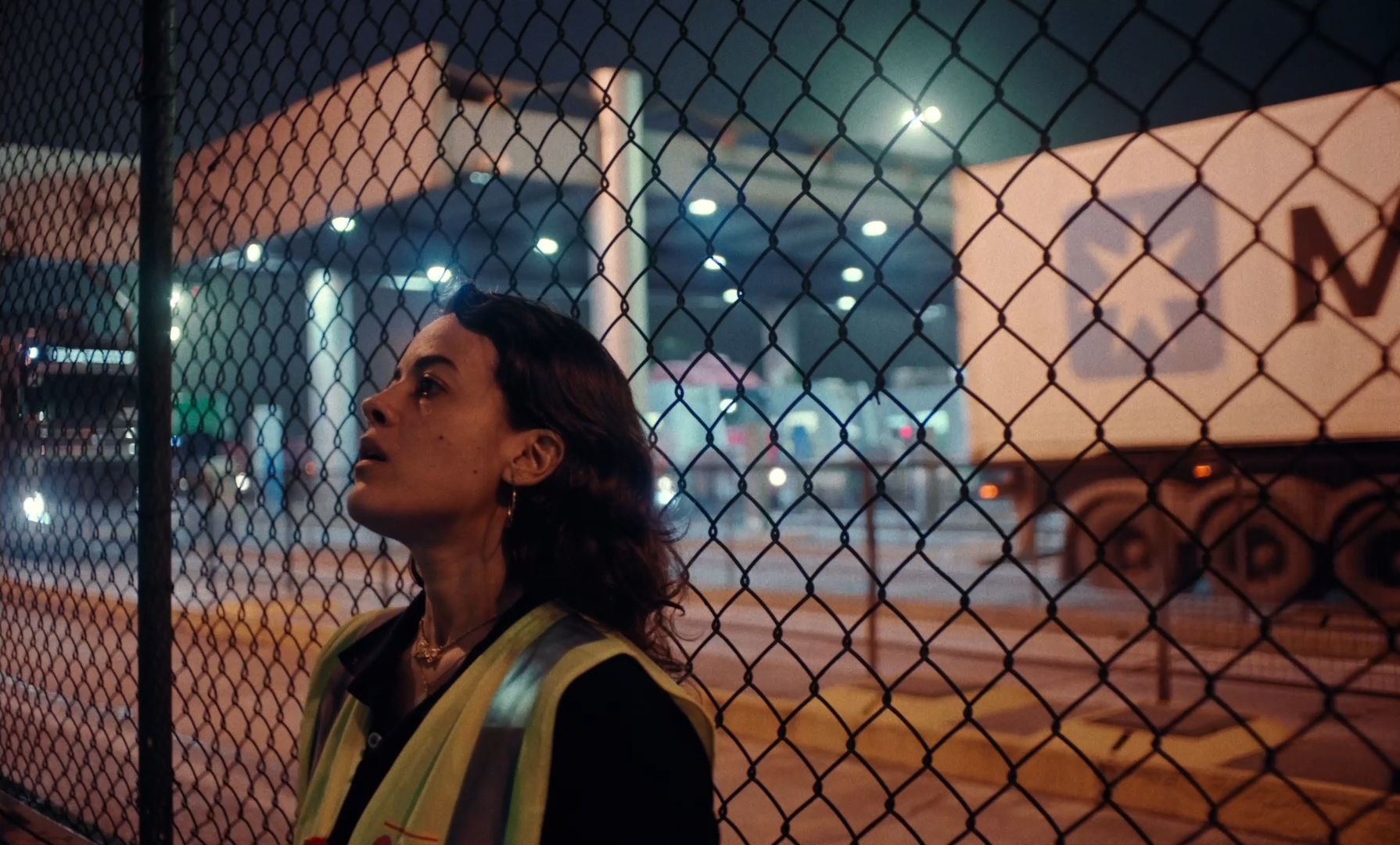
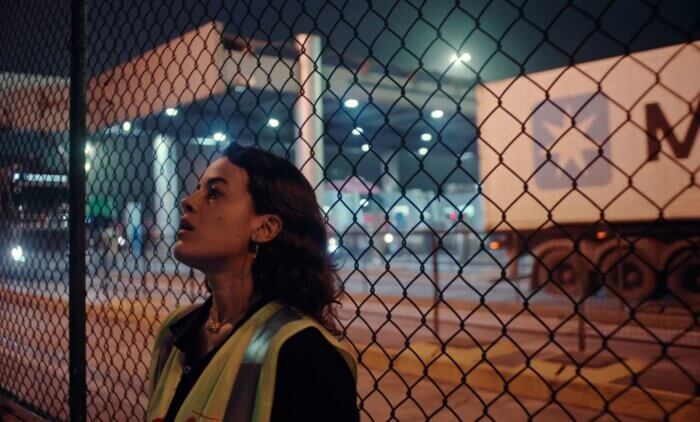
Writer/Director Carolina Markowicz’s absorbing sophomore feature, “Toll,” has Suellen (Maeve Jinkings, from Markowicz’s “Charcoal”), a toll collector, frustrated that her 17-year-old son, Tiquinho (Kauan Alvarenga), is gay. She is also upset with her boyfriend, Arauto (Thomás Aquino), a petty thief who stashes stolen goods in her house. When her coworker, Telma (Aline Marta Maia) convinces Suellen that she should put the ungodly Tiquinho in an expensive conversion therapy program run by Pastor Isaac (Isac Graca), Suellen coordinates a plan for Arauto to rob drivers that pass through her tollbooth. Meanwhile, Tiquinho begins a relationship with Ricky (Caio Macedo) whom he meets in Pastor Isaac’s therapy sessions. “Toll” immerses viewers in the hardscrabble lives of its characters all of whom—save Tiquinho (and Ricky)—are hypocrites. Markowicz creates a strong sense of place, letting viewers feel the grittiness of the houses and eateries where the characters eke out their lives. And the performances are lived-in; Jinkings delivers a moving portrait of a woman who just exudes defeat. As she tries to change others, she really needs to change herself. She is ably supported by Alvarenga (his feature debut) as a moody teen who manages to find ways to survive in the face of adversity.

